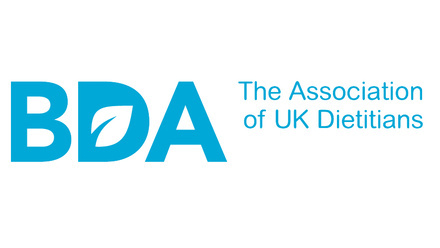The NHS England Long Term Plan sets out a laudable and welcome ambition to improve the NHS and make best use of the funding made available over the next five years. It’s positive to see strong commitments to strengthening and diversifying primary and community care, supporting mental health services and embracing new technology. Continuing to build on progress in areas such as giving patients a greater say in their care, reducing admissions to acute care and tackling health inequality are also very welcome.
We also welcome the intention to introduce greater flexibility into working patterns for health care professionals, and a commitment to protecting CPD and promoting working flexibility, leadership and wellbeing.
Wider role for Allied health professionals (AHPs)
However, it was disappointing not to see any reference to the role of dietitians in areas such as malnutrition and frailty in the elderly, obesity and type 2 diabetes, or the need to recruit more dietitians to help manage and prevents these conditions.
Dietitians, as highly-trained nutrition professionals, are already at the frontline managing the twin crises of malnutrition and obesity and must be at the very heart of the government’s plans in all these areas.
Of course, dietitians also already contribute in a wide range of other areas, including mental health (including eating disorders), cancer care, stroke and dementia.
The promised NHS workforce implementation plan will go some way to help determine if this ambitious NHS plan is feasible. AHPs in general are rightly mentioned in relation to a number of key areas, including primary and community care, but there is only a commitment to ensure “sufficient supply” of AHPs going forward. Government must include specific indications of how it will significantly increase the number and role of all AHPs, including dietitians, to properly exploit the improvements in care and efficiencies we can bring.
We are very encouraged to see a commitment to improving the nutrition education of student doctors – something the BDA has long advocated for this and supported initiatives to make this a reality alongside organisations such as NNEdPro and Nutritank. We hope the government and medical schools can recognise the important role dietitians and the BDA can play in the delivery of this education.
Dietitians are already embracing technology, so a renewed focus on this is positive. However, one of the biggest obstacles we come across is the lack of an agreed approach or policy between Trusts when it comes to use of technology, web, support apps and content by staff. Harmonising these policies would be a big step forward.
While there is a lot of benefit to be gained from apps, telehealth and so forth, it is important to acknowledge that our most vulnerable patients and clients may not be well placed to engage with these formats. Face-to-face care will always need to be an important part of what we do.
Public health and adult social care (ASC)
It is encouraging to see that the NHS will be directly funding a greater range of public health, primary and secondary prevention initiatives, with a particular focus on poor diet and obesity. However, this represents the NHS being forced to step into a gap local government are struggling to fill as a result of swingeing and short-sighted cuts. Better integration between the NHS and local authorities is very welcome, but government needs to act to reverse cuts in public health funding, not just shift responsibility onto the NHS’s budget.
The same goes for ASC – the LTP rightly recognises the vital role ASC plays alongside the NHS in supporting the wellbeing of older people. Although the LTP references a commitment that ASC will be funded so as to ensure there are no additional pressures on the NHS, there is a lack of detail as to what this means. As the Local Government Association have recognised, it is therefore a missed opportunity for the government not to have published a plan for ASC at the same time which includes clear and growing funding for this vital area.
Overall, although this is certainly a positive statement of intent, the devil will, as always, be in the detail. Brexit could still significantly derail these plans if it leads to either a significant economic shock, or impacts negatively on plans to recruit from abroad.
Further developments, such as the NHS workforce plan, AHP Public Health Strategy and the next phase of AHPs into Action all need to deliver if the NHS is to make best use of considerable talents of dietitians and other AHPs.





